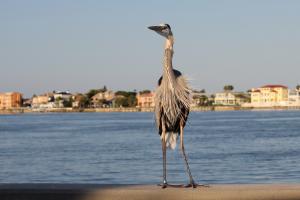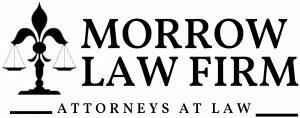
How Louisiana’s Wildlife Population Affects Accident Claims: Legal Considerations
Louisiana’s natural landscape is home to a wide variety of wildlife species, and as their habitats overlap with roadways, the risk of collisions between vehicles and animals is ever-present. According to William P. Morrow, a lawyer at Morrow Law Firm in Opelousas, Louisiana, navigating the legal and insurance implications of these accidents requires careful attention to detail.
Wildlife-Related Accident Claims in Louisiana
Collisions with wildlife can lead to significant damage to vehicles and potential injuries to drivers and passengers. The most common types of animals involved in these accidents are deer, hogs, and alligators. While these accidents are often considered unavoidable, the way they are handled from a legal and insurance perspective can vary.
In Louisiana, accidents involving wildlife are generally treated as no-fault accidents. This means that unless negligence can be proven on the part of a driver, the claim will typically be handled through the vehicle owner’s insurance policy. Comprehensive insurance coverage, rather than standard liability or collision coverage, is usually the policy that addresses damages caused by hitting an animal.
William P. Morrow explains that "Comprehensive insurance is the key factor in resolving claims stemming from wildlife collisions. Without this coverage, vehicle owners may find themselves bearing the financial burden of repairs or replacements."
Proving Negligence in Wildlife Accident Claims
While wildlife-related accidents are often unavoidable, certain circumstances could lead to allegations of negligence. For example, if a driver swerves to avoid hitting an animal and subsequently causes an accident that involves other vehicles or property, questions of liability may arise. In such cases, it is important to determine whether the driver’s actions were reasonable under the circumstances.
In some instances, negligence may also be attributed to the maintenance of the road or surrounding area. If the accident occurs due to poor visibility, a lack of proper signage, or failure to maintain wildlife barriers, liability may extend beyond the driver. Understanding the specifics of each case is essential in determining who may be held responsible for the damages and injuries that result.
Morrow notes that "each accident involving wildlife must be evaluated based on the unique facts of the case, particularly when questions of negligence arise. Identifying whether proper precautions were in place is a critical component of these claims."
Dealing with Injuries and Property Damage
Wildlife-related accidents can result in serious injuries, especially if the driver or passengers are forced to make sudden maneuvers to avoid the animal. Common injuries from these types of accidents include whiplash, broken bones, and traumatic brain injuries. Additionally, damage to the vehicle can be extensive, particularly when large animals such as deer or alligators are involved.
Drivers involved in such accidents should seek medical attention immediately and document any injuries sustained, as well as the damage to their vehicle. Comprehensive documentation is vital when filing a claim with an insurance company, as it helps to establish the extent of the damages and ensures that proper compensation is provided.
Louisiana law requires drivers to report accidents involving significant property damage or injury. In the case of wildlife collisions, this is particularly important, as the involvement of law enforcement can assist in creating a detailed report of the accident, which will be necessary when filing an insurance claim.
Special Considerations for Alligator-Related Accidents
One unique aspect of driving in Louisiana is the presence of alligators, especially in low-lying and swampy areas. Alligator-related accidents can be particularly dangerous due to the size and weight of these animals. Colliding with an alligator can cause severe damage to vehicles and may result in more serious injuries than accidents involving smaller animals.
In addition to the risks posed by the initial collision, alligators are known to become aggressive when injured or threatened. Drivers who encounter alligators on the road should avoid approaching them, as this could lead to personal injury. Instead, it is recommended to contact local authorities for assistance in removing the animal from the roadway.
Morrow points out that "while it may seem rare, accidents involving alligators do occur in Louisiana, and the severity of these incidents requires immediate attention to both legal and safety considerations."
Insurance Coverage for Wildlife Accidents
As previously mentioned, comprehensive insurance is crucial for covering damages caused by wildlife-related accidents. Unlike liability or collision coverage, comprehensive policies are designed to cover non-collision events, including accidents involving animals. This type of coverage is typically optional, so drivers should review their insurance policies to ensure they are adequately protected in the event of a wildlife collision.
In addition to repairing or replacing the vehicle, comprehensive coverage may also provide compensation for medical expenses related to injuries sustained in the accident. However, the extent of coverage will depend on the terms of the policy, and drivers should be aware of any deductibles or limits that may apply.
Drivers without comprehensive insurance may find themselves responsible for the full cost of repairs, which can be a significant financial burden, particularly in cases where the vehicle is severely damaged or totaled.
Steps to Take After a Wildlife-Related Accident
If an accident involving wildlife occurs, there are several important steps to take to ensure proper handling of the situation. First, the driver should prioritize safety by moving the vehicle out of the road if possible and turning on hazard lights to warn other drivers. Contacting local authorities is essential, especially if there is significant damage, injury, or a large animal involved.
Documenting the scene of the accident is also critical. Taking photos of the damage, the animal involved, and the surroundings can help support an insurance claim. The driver should also file a police report if necessary and notify their insurance company as soon as possible to begin the claims process.
Understanding the legal implications of wildlife-related accidents can help drivers navigate the complexities of filing a claim and seeking compensation for damages. By ensuring that comprehensive insurance coverage is in place and knowing how to respond in the event of an accident, drivers can better protect themselves from the financial and legal risks associated with Louisiana’s wildlife population.
The Morrow Law Firm, led by William P. Morrow, John Michael Morrow, Jr., and Stephen M. Morrow, advises drivers to be aware of the potential for wildlife accidents and take proactive steps to secure adequate insurance coverage. These measures can help mitigate the impact of collisions with animals and provide essential protection in the event of an accident.
Morgan Thomas
Rhino Digital, LLC
+1 504-875-5036
email us here
Visit us on social media:
Facebook
Distribution channels: Culture, Society & Lifestyle, Insurance Industry, Law
Legal Disclaimer:
EIN Presswire provides this news content "as is" without warranty of any kind. We do not accept any responsibility or liability for the accuracy, content, images, videos, licenses, completeness, legality, or reliability of the information contained in this article. If you have any complaints or copyright issues related to this article, kindly contact the author above.
Submit your press release

